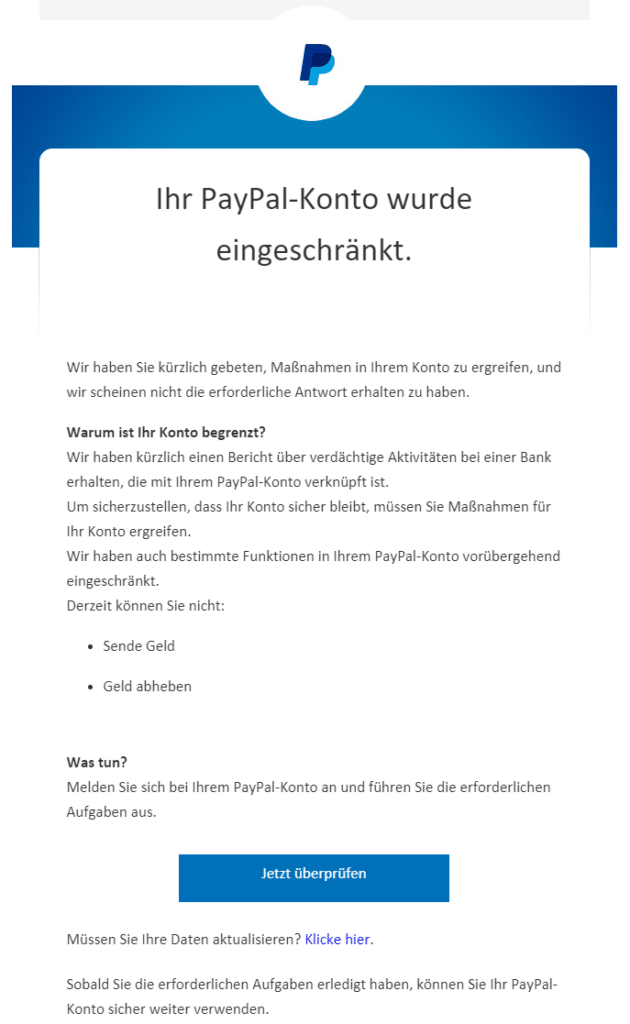In recent days, PayPal users have again been the target of phishing attacks. Scammers send emails with the subject “We have recognized that the card associated with your account has been temporarily blocked, please verify or update your payment method within 24 hours.”

These messages claim that the bank account associated with the account has been blocked due to suspicious activity. Users will be asked to log in and follow certain steps to make their account functional again.
Identification of phishing emails
These phishing emails are typically characterized by non-specific salutations, messages that suggest urgency, and requests to verify personal information. They often contain grammatical errors or unusual wording that may indicate fraudulent intent. PayPal itself points out on its website that the user's personal data is always provided in official communications and that sensitive information such as passwords is never requested.
If fraudsters gain access to a PayPal account, there can be several serious consequences:
- Unauthorized Transactions : Fraudsters can use the taken over account to make unauthorized purchases or transfer money to other accounts.
- Financial Loss : Direct financial loss may occur if funds are withdrawn from the Account or linked bank accounts.
- Identity theft : Fraudsters can use the stolen personal and financial information to commit identity theft, which can result in long-term credit impairment.
- Access to additional accounts : Since many people use the same passwords for multiple services, fraudsters can use access to a PayPal account as a starting point to gain access to additional online accounts of the victim.
- Phishing attacks on contacts : Fraudsters can use the hijacked account to launch phishing attacks on the victim's contacts by sending fraudulent messages using the victim's trusted identity.
- Loss of reputation : If a business account is affected, it can lead to a loss of trust among customers and partners and damage the company's reputation.
Correct handling of suspected cases
If you receive such an email, you should not respond, click on any links, or open any attachments. Instead, it is advisable to report the email directly to PayPal and then move it to the spam folder. This helps ensure similar messages are automatically filtered in the future. It's also a good idea to regularly check your PayPal account for unusual activity and use a strong, unique password.
Conclusion
Faking security problems is a well-known scam used by fraudsters to obtain sensitive user data. Consistently ignoring such phishing emails and acting consciously in the event of suspicion protects against identity theft and preserves the integrity of your PayPal account.
Let us take responsibility together and educate ourselves. Subscribe to the Mimikama newsletter and use our media educational offers to protect yourself and your loved ones from the hidden dangers of the Internet.
You might also be interested in:
Fake PayPal emails: “Your account has been restricted for security reasons”
How fake Amazon and PayPal calls hunt for your money!
The “PayPal representative” on the phone could ruin you!
Notes:
1) This content reflects the current state of affairs at the time of publication. The reproduction of individual images, screenshots, embeds or video sequences serves to discuss the topic. 2) Individual contributions were created through the use of machine assistance and were carefully checked by the Mimikama editorial team before publication. ( Reason )

